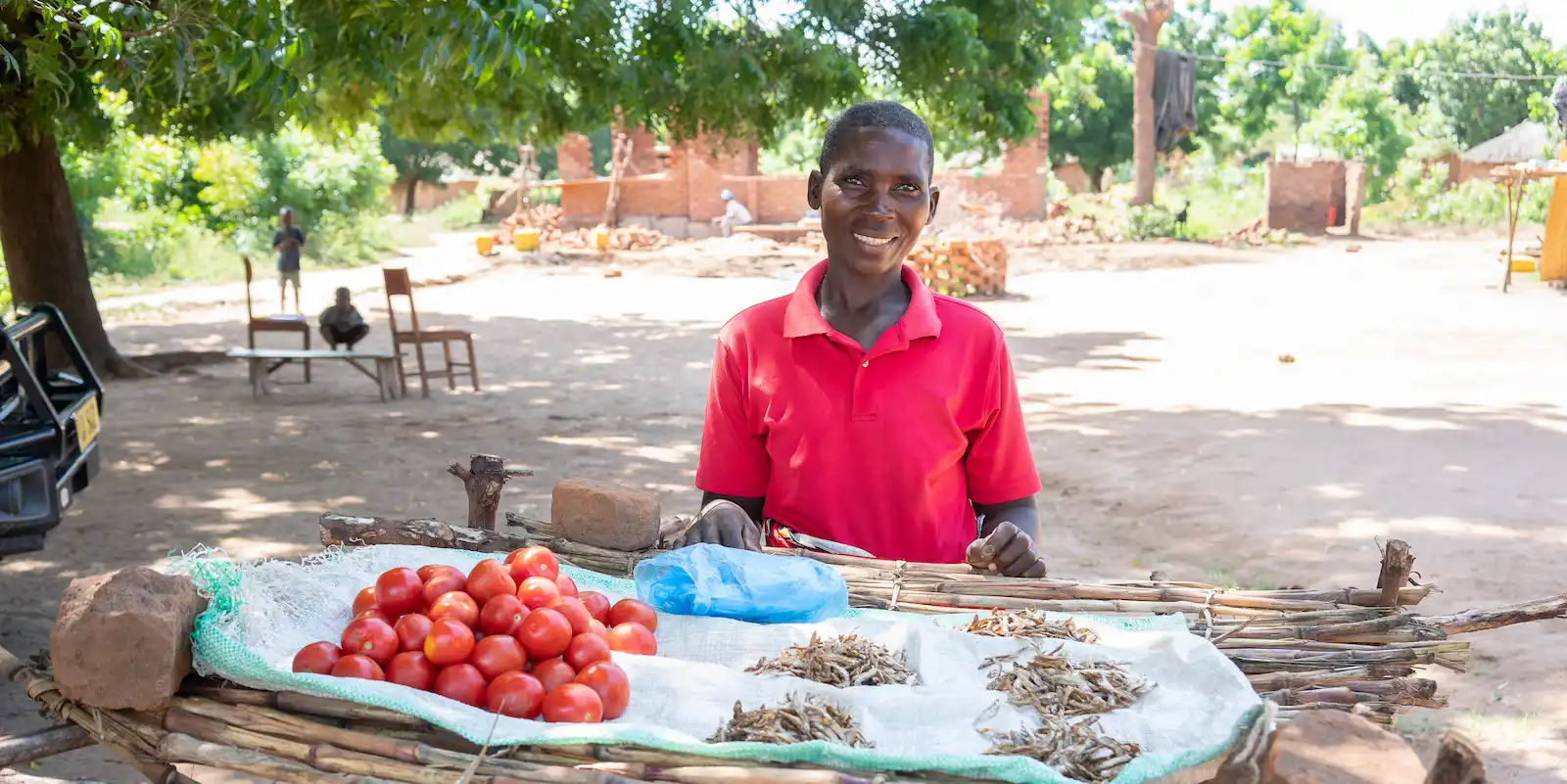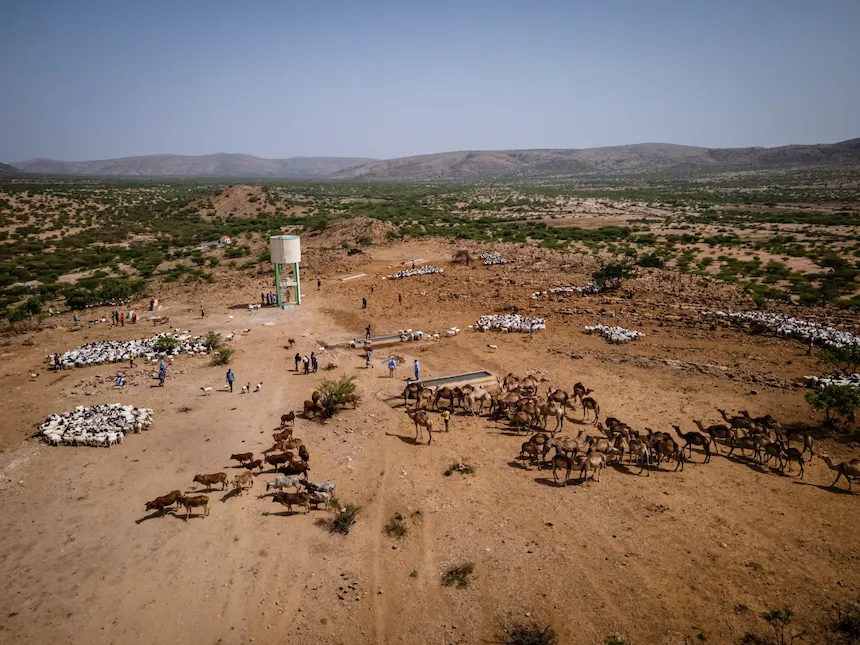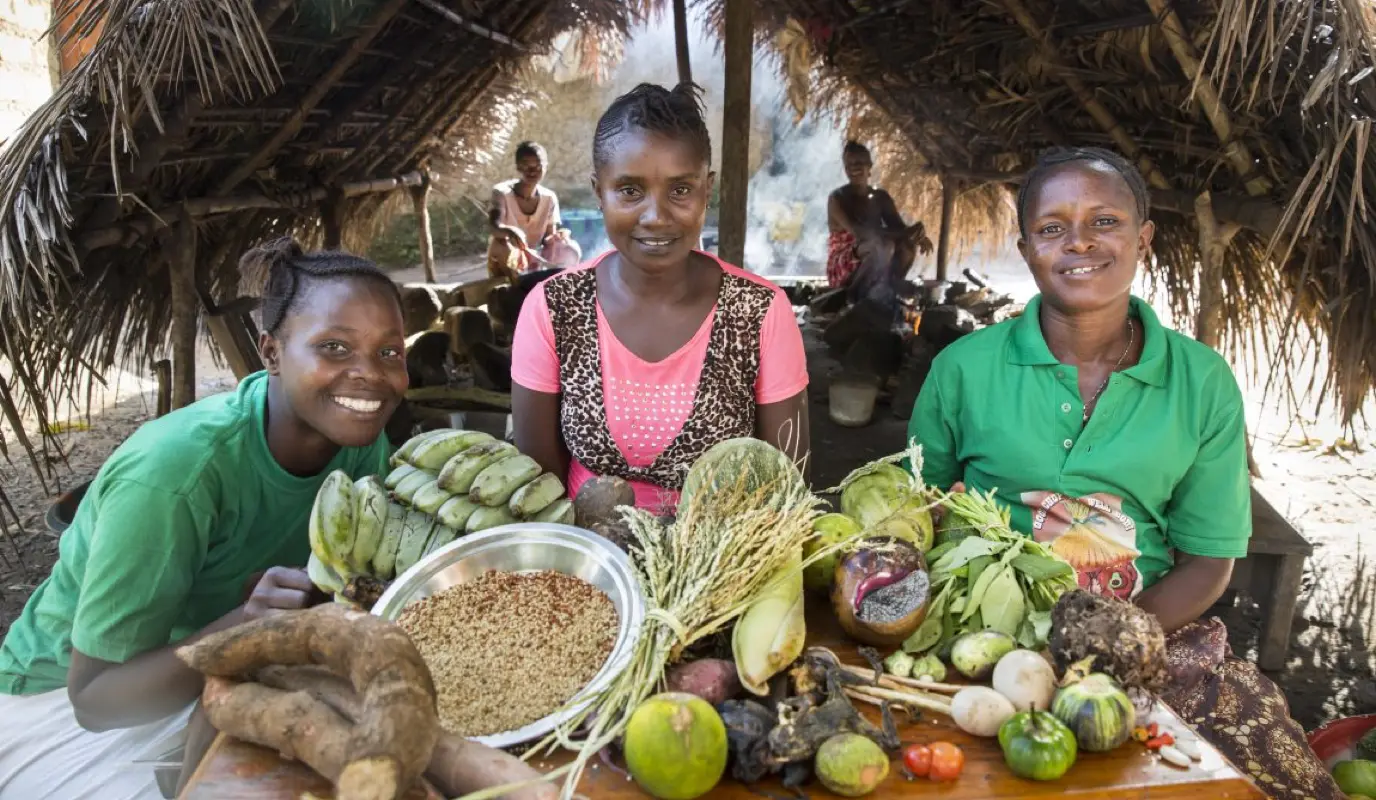Opinion: Ending world hunger is a political choice

Despite promises made by world leaders to tackle world hunger and meet the Sustainable Development Goals’ agenda by 2030, more than 800 million people are experiencing extreme hunger, while a third of all food is wasted and lives are being lost every day. Food insecurity and famine persist despite being preventable, but changing this scenario depends on political leaders making the decision to invest in sustainable solutions.
A historical hunger crisis
According to the 2023 Global Report on Food Crisis, 258 million people in 58 countries and territories faced acute food insecurity at crisis levels or worse in 2022. This number is still growing at an alarming speed. Economic shocks, conflicts and weather extremes driven by climate change continue to accelerate major food crises, and there is no indication that these drivers will ease in 2023. Climate change, conflict and economic shocks also mean the cost of food and fertilizers has increased dramatically. The impacts are intensified by deep-rooted underlying issues affecting Fragile and Conflict Affected Contexts (FCAC) such as poor infrastructure, high inequality and chronic poverty leading to accelerating levels of extreme hunger and malnutrition.

The long-term and increasingly forgotten economic and social impacts of Covid-19, the conflict in Ukraine, and crises in FCAC have created additional challenges, with rising national debt and a global cost of living crisis making it increasingly difficult for countries to respond. In the Horn of Africa alone, three years of drought across the region has led to catastrophic consequences on the population’s crops, livestock and livelihoods. Over 22 million people are now estimated to be acutely food insecure in Ethiopia, Kenya and Somalia
Hunger and famine: a lack of political will… or a decision?
Hunger and famine is preventable through political will and financial support. Earlier this year, leaders of some of the world’s richest nations convened at several events to discuss solutions to global hunger. The G7 Summit involved leaders of Canada, France, Germany, Italy, the United Kingdom and the United States, meeting to discuss solutions to some of the most pressing issues facing the international community, including world hunger and food insecurity. The Horn of Africa pledging conference involved leaders discussing solutions to support the humanitarian response in the Horn of Africa. At neither event was there evidence of the long-term sustainable commitments needed to alleviate immediate effects of the current crisis and prevent future ones. The opportunities were there to take the decision to tackle the cycle of hunger in the long-term through adequate financing, but the disappointing outcomes mark an international failure to respond.

Increasing the level of financing for the needed humanitarian interventions depends on political will to unlock funding where it can be found, specifically through tax reforms. In 2022, the richest 1% globally accumulated nearly two-thirds of all new wealth worth $42 trillion, whilst 95 food and energy corporations more than doubled their profits, paying out 84% of this profit to their shareholders, as revealed by Oxfam’s report Survival of the Richest. The long-standing, growing and immoral hunger crisis can be ended and indeed prevented in the future, if the choice is made to end hunger once and for all. Global hunger is not because there is not enough food or enough money. It is a matter of will. Rich nations could choose to leverage additional financial resources through wealth taxes, and remove tax exemptions that perpetuate global inequalities and poverty. Hunger is not confined to the world’s poorest countries. It is increasingly a global problem.
World leaders have consistently been made aware of the rise of the global hunger crisis over the past years. Calls from the international community, including the UN, urge political leaders to provide sufficient funding to prevent future crises from occurring and to provide immediate humanitarian response. There is evidence that funding prevention provides sustainable outcomes long-term, especially on livelihood, education, health and nutrition. At Concern, we have raised the alarm, and called for governments to step up and prevent the hunger crisis from escalating. Yet again, G7 countries are collectively not committing enough to end the global hunger crisis. Is this then a lack of political will, or a decision?

Food crises are global
There is no doubt, the hunger crisis is global because food systems are broken. Food systems include all actors' actions involved in the production, storage, transport, disposal and consumption of food. The consequences of poor governance of food systems are visible everywhere most especially in the fragile and conflict affected countries.
There are solutions to transforming food systems and ensuring that populations are not only food secure, but also have their nutrition needs met. The UN has called for a profound transformation of food systems, to end inequities, violence and a system that perpetuates the cycle of poverty, to lay the foundation of new systems based on human rights, dignity and justice. In the Global Hunger Index Report 2022, Concern Worldwide and Welthungerhilfe made three core recommendations towards more resilient, inclusive and nutritive food systems that will put an end to hunger and malnutrition for the long-term:
- Putting inclusive governance and accountability at the center of efforts to transform food systems.
- Ensuring citizen’s participation, action, and oversight, and consider the local context.
- Scale up resources to address pressing humanitarian needs, while transforming food systems to make them resilient to shocks.
We call on political leaders to make the choice to end the cycle of hunger crises and to prioritize people’s rights to adequate food, through substantial finances for immediate humanitarian needs and long-term food system resilience globally. This is the only sustainable future for us all.
Mathilde Chiesa is a Senior Policy Officer (Hunger and Nutrition) for Concern Worldwide.